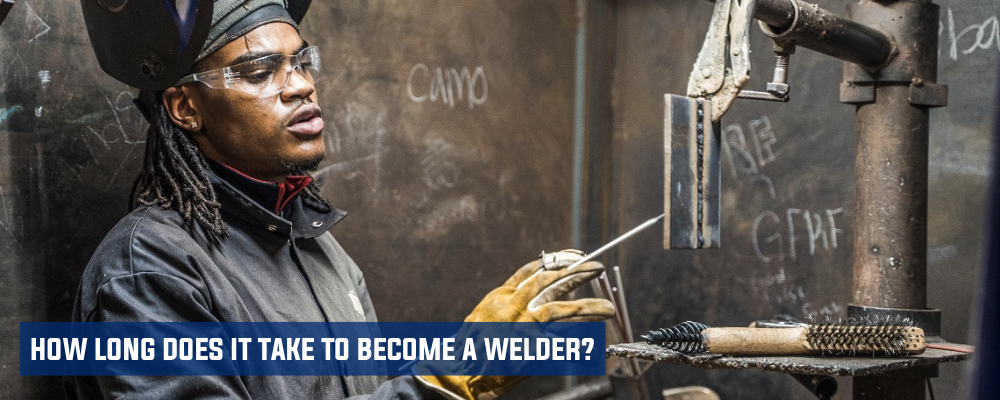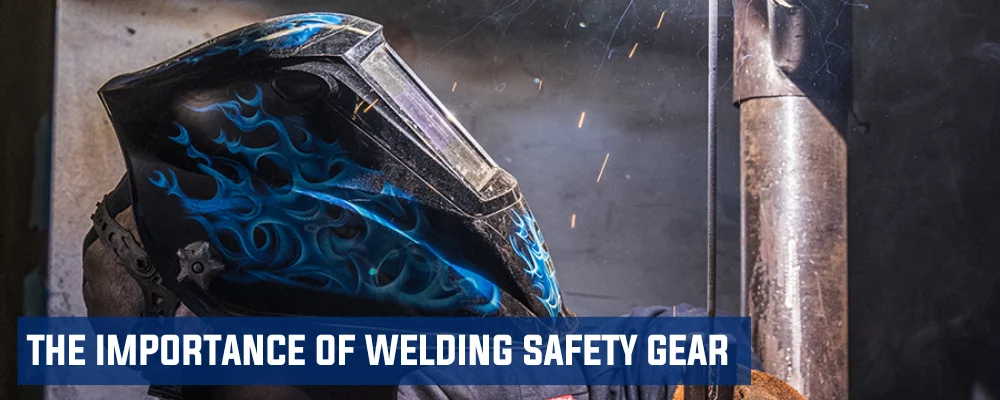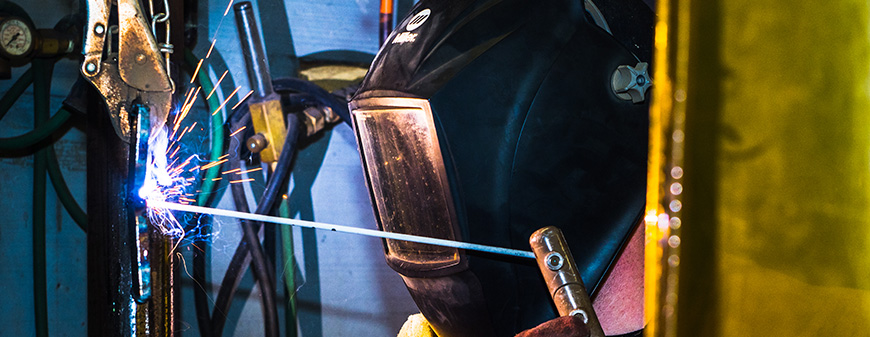A welder is a skilled trades worker who joins or cuts metal by applying heat with hand-held or remotely controlled equipment. Part of the job of a welder is also to fill holes, indentations, or seams. Welders work in industries like manufacturing, construction, and shipbuilding.
Becoming a welder usually involves getting a high school degree (or equivalent), welder training, and industry certifications. The time it takes to complete each of these steps can vary, depending on which welding career path you choose.
How Long Does it Take to Become a Welder
How long it takes to become a welder generally depends on which educational route you select. For instance, an apprenticeship may take a few years to finish, whereas vocational school education can often be finished in less than a year. It is also important to note that some people begin welding training as early as high school, if a vocational program is offered at their school. Others might start their training at a vocational school with no prior experience. Here are some factors that impact the time it takes to become a welder.
High School/GED
Whether aspiring welders choose on-the-job training or a vocational school, a high school degree or equivalent like a GED certificate is normally the minimum educational requirement. High school students interested in a welding career may want to specifically focus on math, science, and shop classes. It usually takes four years to receive a high school diploma and about three months to obtain a GED certificate.
Welder Training
Training options for future welders include on-the-job training, welding training programs, vocational school, apprenticeships, and community college. Students can receive a certificate, diploma, or associate degree at the end of their welder training. Welders-to-be are instructed in welding techniques, metallurgy, blueprint reading, and safety procedures.
Learning the welding trade may take anywhere from a few months to a few years, depending on the kind of training a welder pursues. Some welders start as laborers, and earn on-the-job training that allows them to advance in the field without ever attending a formal vocational training program. However, starting as a laborer and becoming a welder can take years.
It’s also important to note that although some employers may be willing to hire inexperienced entry-level workers and train them on the job, many prefer to hire workers who already have training, credentials and certifications. That’s due in part because even entry-level workers with formal technical training still often have to receive several months of on-the-job training and in some cases certifications, depending on their employer.
Welder Certifications
As part of their training, students often get certified in specific welding technologies. For example, Delta Technical College certifies students in various SMAW, GTAW, and FCAW techniques. Employers may also have internal certification programs, especially when they work with specific equipment.
A number of industry organizations offer certifications as well, such as the American Welding Society (AWS), the American Petroleum Institute (API), and American Society of Mechanical Engineers (ASME). Some certifications are available to students during their welding training or shortly thereafter, while others require a minimum amount of work experience.
How Long Do You Have to Go to School to Be a Welder?
While some choose to learn the trade on the job, many employers prefer candidates with formal training. The two main options for those who wish to enroll in welding training programs are vocational school or community college.
Vocational School
A skilled trades training program at a vocational school emphasizes welding skills. DTC’s hands-on welding program covers welding techniques, shop safety, pipefitting skills, and blue print reading. Classes cover metal properties, cutting techniques, safety training, rigging, metallurgy, and math. Students may finish the welding program in seven months. They receive a diploma upon graduation.
Community College
A community college welding program typically lasts two years and allows students to graduate with an associate degree. Some students may take longer to finish due to their individual schedule. Welding programs at community colleges cover similar topics as vocational school programs, but students must also enroll in general education classes like English or History.
How Long Does it Take to Get Your Welding License
Licensing requirements differ from state to state. In Mississippi, welding contractors need a license if they work on public projects that cost $50,000 or more, or on private projects that cost $100,000 or more. Applicants must be pre-approved by the state before they can sit for the exam.
While Mississippi does not demand a minimum amount of work experience, the state does expect industry experience and asks for supporting documentation. The Mississippi welding contractor license covers unlimited welding work. The licensing exam consists of 60 questions and has a time limit of two hours. Test takers are questioned on typical welder job duties like oxyacetylene welding and cutting, blueprint and plan reading, brazing, pipe welding, materials, SMAW, GIAW, as well as testing and inspection.
To pass, welders must answer 70 percent of the exam questions correctly. In addition, applicants must also pass a Business and Law Management exam to obtain this state license. Mississippi has a limited reciprocity agreement with Alabama, Arkansas, Louisiana, Tennessee, and South Carolina. Welders must have held a license in these states for at least three consecutive years.
Interested in Learning More About Welding?
Fill out the form below to receive info about our career training programs.
Becoming a Welder
Becoming a welder involves a number of steps: getting welding training, obtaining certifications, and earning any necessary licenses. How much time you need for each step depends on factors like your educational preferences, individual abilities, or work requirements. Typically, attending a welder training program at a trade school is the fastest route to becoming an entry-level welder.
Want to learn more about DTC‘s Welding Programs? Fill out the form below to contact your local campus.
SOURCES
-
https://www.bls.gov/ooh/production/welders-cutters-solderers-and-brazers.htm#tab-1
-
https://learn.org/articles/Welding_Become_a_Welder_in_5_Steps.html
-
https://learn.org/articles/Welding_Become_a_Welder_in_5_Steps.html
-
https://www.bls.gov/ooh/production/welders-cutters-solderers-and-brazers.htm#tab-4
-
https://www.aws.org/certification
-
http://www.api.org/products-and-services/individual-certification-programs/certifications/api577
-
https://www.asme.org/shop/certification-accreditation/boiler-and-pressure-vessel-certification
-
https://secure1.examprep.org/InfoDialog/selectlicensecontent1.aspx?State=MS&st=MS&Name=Mississippi%20Welding%20Contractor&Course=927


